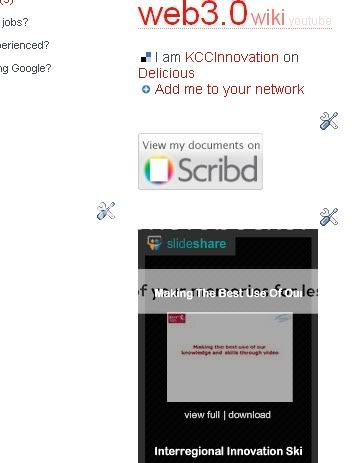
Gaming & Training: The key to a kinder, more intelligent mankind?

The effects of violence in gaming pops up frequently within the media, case studies include Eric Harris and Dylan Klebold who were allegedly obsessed with the video game ‘Doom’ and killed 12 students and a teacher. In February, 2003, 16-year-old American Dustin Lynch was charged with aggravated murder and made an insanity defense that he was "obsessed" with ‘Grand Theft Auto III’. Research suggests that violent video games influence aggressive behaviour, aggressive affect, aggressive cognition, and physiological arousal. The one consistent finding is that the majority of the studies on very young children—as opposed to those in their teens upwards—tend to show that children do become more aggressive after either playing or watching a violent video game.
Pro - Social Behaviour
However, the question is, can gaming also influence pro-social behaviour? Three studies attempted to answer this question by looking at the behaviours of children in Japan, Singapore and the USA.
In Singapore, children made a list of their favorite characters, rated the number of times the character helped or harmed others and then answered questions about how likely they were to help people in need. Researchers found a strong link between playing prosocial games and helping others.
In Japan, individuals were surveyed about their exposure to prosocial games and they noted how often they helped other people in the month before. They were surveyed again after a gap of 3 to 4 months. The researchers found a major relationship between exposure to prosocial games and helpful behavior months later.
In the USA, students were made to play either a prosocial, violent or neutral game and were later asked to assign puzzles to randomly selected partners. They could choose to assign puzzles which were easy, medium or hard to complete. It was observed that the players who played prosocial games assigned easier puzzles to their partners whereas those who played violent games were more likely to assign the hardest of puzzles.
One of the authors further stated, “This suggests there is an upward spiral of prosocial gaming and helpful behavior, in contrast to the downward spiral that occurs with violent video gaming and aggressive behavior.”
Learning Behaviour
In terms of learning behaviour, research has shown that a combination of structured teaching and a computer simulation was effective in teaching not only factual-level knowledge, but higher cognitive skills as well.
Researchers who gathered in Boston for the American Psychological Association convention detailed a series of studies suggesting video games can be powerful learning tools, from increasing younger students’ problem-solving potential to improving the skills of surgeons. One study even looked at whether playing “World of Warcraft”, the world’s biggest multiplayer online game, can improve scientific thinking.
The conclusion?
Certain types of gaming have advantages beyond the virtual thrills of blowing up demons. Therefore, would it be beneficial to incorporate gaming into educating children in schools and training for staff?
If you have any thoughts or opinions on the topic please leave a comment. Similarly, if you are working on a project which involves gaming and behaviours, please contact us at innovation@kent.gov.uk.
- Kirsty Russell
Picture: Two young boys playing on a games console, with thanks to Sean Dreilinger for publishing on Flickr under a Creative Commons licience some rights reserved.
Pro - Social Behaviour
However, the question is, can gaming also influence pro-social behaviour? Three studies attempted to answer this question by looking at the behaviours of children in Japan, Singapore and the USA.
In Singapore, children made a list of their favorite characters, rated the number of times the character helped or harmed others and then answered questions about how likely they were to help people in need. Researchers found a strong link between playing prosocial games and helping others.
In Japan, individuals were surveyed about their exposure to prosocial games and they noted how often they helped other people in the month before. They were surveyed again after a gap of 3 to 4 months. The researchers found a major relationship between exposure to prosocial games and helpful behavior months later.
In the USA, students were made to play either a prosocial, violent or neutral game and were later asked to assign puzzles to randomly selected partners. They could choose to assign puzzles which were easy, medium or hard to complete. It was observed that the players who played prosocial games assigned easier puzzles to their partners whereas those who played violent games were more likely to assign the hardest of puzzles.
One of the authors further stated, “This suggests there is an upward spiral of prosocial gaming and helpful behavior, in contrast to the downward spiral that occurs with violent video gaming and aggressive behavior.”
Learning Behaviour
In terms of learning behaviour, research has shown that a combination of structured teaching and a computer simulation was effective in teaching not only factual-level knowledge, but higher cognitive skills as well.
Researchers who gathered in Boston for the American Psychological Association convention detailed a series of studies suggesting video games can be powerful learning tools, from increasing younger students’ problem-solving potential to improving the skills of surgeons. One study even looked at whether playing “World of Warcraft”, the world’s biggest multiplayer online game, can improve scientific thinking.
The conclusion?
Certain types of gaming have advantages beyond the virtual thrills of blowing up demons. Therefore, would it be beneficial to incorporate gaming into educating children in schools and training for staff?
If you have any thoughts or opinions on the topic please leave a comment. Similarly, if you are working on a project which involves gaming and behaviours, please contact us at innovation@kent.gov.uk.
- Kirsty Russell
Picture: Two young boys playing on a games console, with thanks to Sean Dreilinger for publishing on Flickr under a Creative Commons licience some rights reserved.
| What next • Subscribe to iNews • Check out our Twitter • E-mail us your ideas/thoughts | More Articles • Are You Experienced? • Who said all pop-ups need to be blocked? • All consuming Google? |















